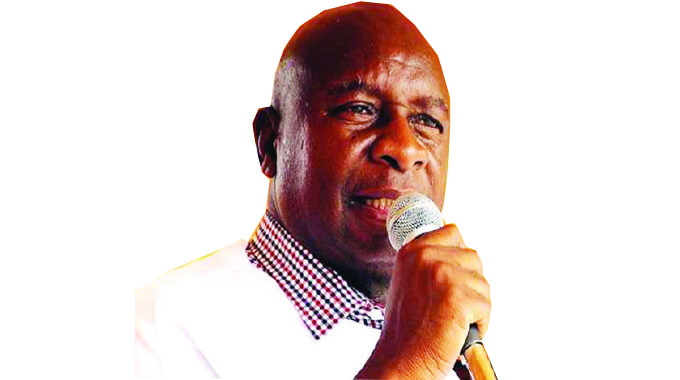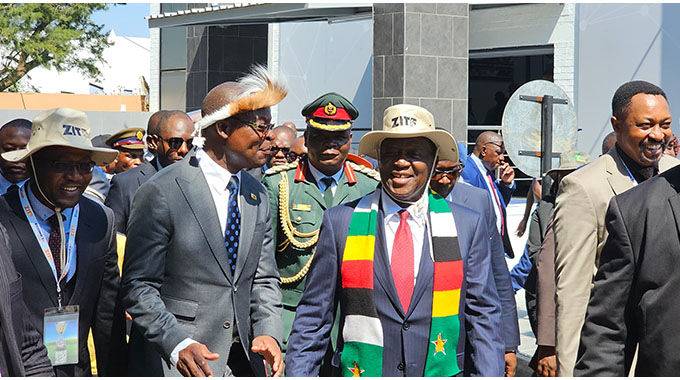‘CALAs here to stay’ . . . key component of new competence-based curriculum

Mashudu Netsianda, Senior Reporter
GOVERNMENT has strongly affirmed that there is no going back on implementation of the continuous assessment learning activities (CALAs) for examination classes in line with the new competence-based curriculum introduced in 2017.
CALAs is a new assessment that requires learners to perform, and to demonstrate their knowledge, understanding and proficiency.
It presents a situation that calls for learners to apply their learning in context.
The new model embraces a combination of continuous assessment (CA) and high stakes examinations.
CALAs forms part of the weighted contribution to learner performance outcome at Grade 7, Form 4 and Upper 6 final examinations.
It is the assessment of a pupil’s progress throughout a course of study rather than exclusively by examination at the end of it.
According to the policy framework, the new grading system will see Grade 7 final results determined by 30 percent of continuous assessment and 70 percent on national examinations. At Form 4, the framework states that learners’ grades be based 40 percent on theoretical examination, 30 percent practical examination and 30 percent continuous assessment.
The continuous assessment framework ultimately sets out what learners are expected to know and be able to do as a direct result of their learning in schools and non-formal education, starting from early childhood development (ECD) to secondary level.
The concept emphasises the assessment of knowledge, skills, abilities, values and trends to ascertain the achievement of desired learner exit profiles at any level.
At the moment, it only applies to examination classes.
Officially opening a three-day continuous assessment framework workshop for district schools’ inspectors in the southern region in Bulawayo yesterday, Primary and Secondary Education Deputy Minister Edgar Moyo said despite cynicism in some sections of society, Government is going ahead with implementation of CALAs, which is now a policy.
“The various misconceptions will die naturally since CALAs has come to stay, although some people argued that we have to postpone it. CALAs is a key component of the new competence-based curriculum, which was introduced in 2017,” he said.
“It also has an assessment element in it, which we have delayed in implementing. The continuous assessment is meant to look at the formative side of assessment of abilities of children.”
The continuous assessment framework accord teachers/facilitators the opportunity to participate fully in the assessment of their learners.
According to the Permanent Secretary’s Circular No.10 of 2021, CALAs implementation is now policy and learners who do not obtain marks for CALAs cannot obtain a final mark at the end.
Dep Min Moyo said learners are supposed to carry out three CALAs per learning area for the current year with deadlines having already been set in terms of the circular.
“For the purposes of reliability and validity, moderating teams at school in districts and provinces will ensure that the tasks are authentic. It is important that teachers are thoroughly trained on CALAs implementation so that they view it as an enrichment to the syllabi content and apply it as an approached teaching,” he said.
“The training of district schools’ inspectors currently taking place comes at an opportune time to demystify CALAs.”
The Ministry of Primary and Secondary Education adopted a competence-based curriculum (CBC) as enshrined in the curriculum framework 2015-2022.
CBC emphasises the development of skills and competencies that include problem solving, critical thinking, leadership, technological enterprise and the philosophy of Ubuntu.
A Commission of Inquiry into Education and Training of 1999 recommended the inclusion of continuous assessment as part of final learner assessment.
Dep Min Moyo said CALAs provides a platform for learners to come up with solutions to problems in their respective environments.
“The success of continuous assessment depends on the training of teachers and administrative personnel in the education system. Effective assessments instruments also need to be put in place,” he said.
“A clear training programme has been put in place where all head office staff, provincial personnel, district staff, headmasters and school teachers would be trained in that order. The Covid-19 pandemic disturbed the whole process.”
Dep Min Moyo said CALAs is a balanced form of assessment with the ministry aiming to provide a holistic, inclusive, relevant and competence-based quality 21st century education that leaves no learner behind in line with Vision 2030.
“Continuous assessment becomes critical in placing the learner where she or he belongs. The other important aspect of CALAs is that it is going to give our children confidence as they go into the examination because they would have done things, which are recorded and recognised and become part of the final assessment,” he said.
“When they go into the examination room, at least they will be carrying something with them rather than going into the exam room completely at zero with their fate being completely decided at the exam period, which is not fair to our children.”
According to the curriculum framework 2015-2022, learner assessment of Grade 7, Form 4 and Upper 6 comprises the traditional summative assessment, which deals with academic work and continuous assessment which emphasises skills and competencies that learners are endowed with.
“If we just concentrate on one, which is the summative, we are disadvantaging children because learners have different capabilities. Others are good at remembering and not good at doing, so it means if we don’t implement CALAs, we are actually condemning from the system those children who have skills,” said Dep Min Moyo.
“We want to look at the ‘doing aspect and remembering aspect’ together so that children can move on. CALAs has two assessment frameworks which are: the continued assessment and summative assessment and we want to ensure that the holistic assessment of the learner is guaranteed.”
The deputy minister noted that for a long time, the assessment of learners in Zimbabwe has been summative with learners being assessed in academic work only at the expense of other competencies.
He said the introduction of continuous assessment in the new curriculum is crucial to the teaching and learning process as it provides useful information about where learners are in their learning within given learning areas, thus giving evidence about how candidates are consuming the new curriculum.
“Some learners are gifted in practical skills that are essential for their future livelihoods and these should be identified in a child early. These are measured through continuous assessment which the summative assessment could not do,” he said.
“The continuous assessment therefore is the formative assessment of a pupil’s performance progress throughout the course of duty for study.”
Dep Min Moyo said these assessments will also be used to make informed decisions about education in the country based on the performance of the candidates at various levels.
“CALAs are recorded for future career placement. This concept is not a new phenomenon since learners have been having practical projects in technical and vocational subjects,” he said.
“Contingency measures had to be taken where all examination class teachers were trained and the process is ongoing as of now.” – @mashnets









Comments